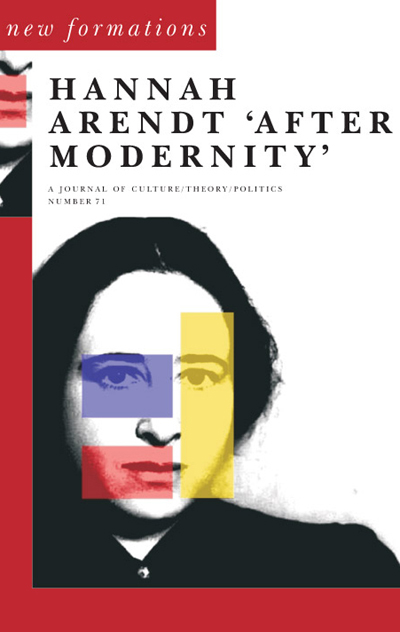
The life process and forgettable living: Arendt and Agamben
New Formations - Print ISSN 0950-2378 - Online ISSN 1741-0789
Volume 2010 Number 71
The life process and forgettable living: Arendt and Agamben
Rei Terada
Abstract
Hannah Arendt’s low estimation of household and society in The Human Condition is ambiguously grounded in her objections to expropriation of labour, on one hand - an expropriation that she associates with the ‘life process’ - and to what she perceives as the ‘futility of mortal life’ on the other. This essay explores this tension in The Human Condition and compares it (more briefly) to related thoughts about bare life, subjectivity, and meaninglessness in Karl Marx, Giorgio Agamben and T.W. Adorno. It suggests, positively, that bare life and subjectivity alike occlude living - something different from either the life processor work and which is neither human nor bare life, bios nor zoe, vitality nor culture, and which therefore involves the toleration of meaninglessness.
SORRY - you are not registered as being permitted online access to the full text of this article
You have the following options:
- If you are viewing this via an institution or academic library you can ask that your institution takes out a Subscription to this journal.
- If you already have a Personal Subscription please login below
Forgotten your username / password? Click here to locate
- Purchase an annual Personal Subscription
PRINT + DIGITAL personal subscription (£45 / year)
DIGITAL personal subscription (£30 / year)
A Personal Subscription provides immediate access not only to the single article you are seeking, but also to all past and future articles in this journal up to the expiry of your annual (calendar year) subscription. - Purchase immediate access to this single article (UK£7.00) - Buy article Coming Soon
To cite this article
Rei Terada (2010) The life process and forgettable living: Arendt and Agamben, New Formations, 2010(71)
